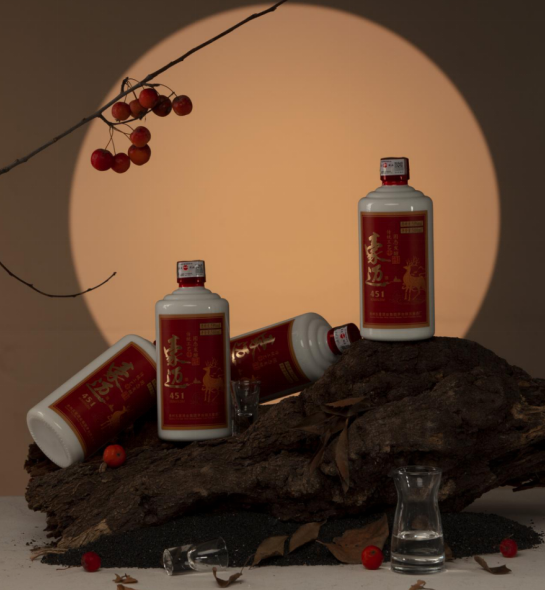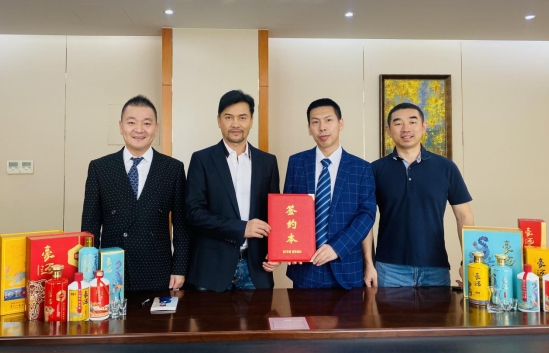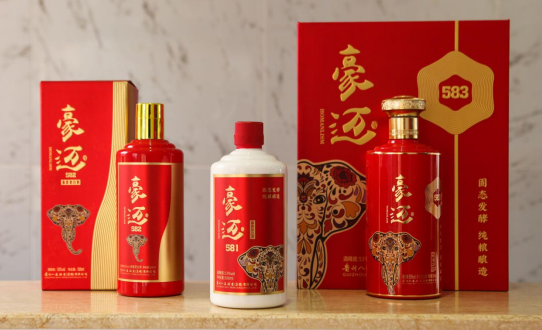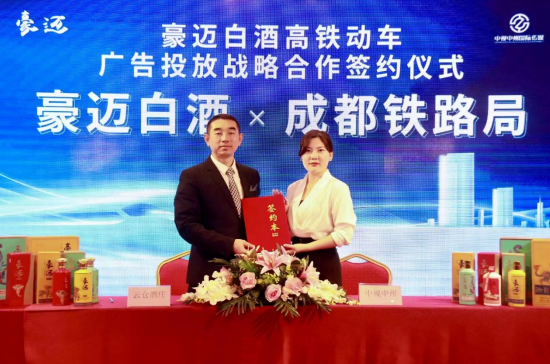Learn about the brewing process and storage time of HOMANLISM Baijiu with the prefix 7 from the 12987 process
Recently, the new series of Maotai-flavored wine with the theme of "Life is heroic and heroic" was officially launched and released. .
It is understood that the Maotai-flavored wines of the HOMANLISM 7-prefix series are 781, 782, and 783, which are divided into different packages according to the scene. They are all carefully brewed by winemakers using the traditional 12987 brewing process. After complicated processes, from feeding materials to products leaving the factory, they have gone through many links of tempering.
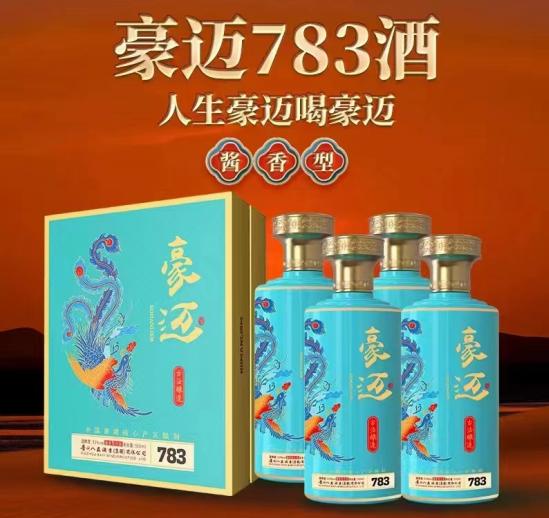
What is the 12987 brewing process?
The "1" in the 12987 process means that it takes one year to complete a cycle in the brewing process of Daqu Jiangjiu. It needs to go through two feedings, nine cookings, eight fermentations, and seven extractions of wine. So it is called 12987 craft. After thousands of years of precipitation and summarization, the 12987 process is known for its complex process, time-consuming, high cost, low yield and high-quality wine, and has become the best process for brewing sauce wine today.
The "2" in the 12987 process means that two feedings are required in the brewing process of Daqu Jiangjiu. "Sha" means red grain, that is, sorghum. The production process of the first feeding is the so-called "sand sand" in the production process of Maotai-flavored liquor. "Unloading sand" includes six processes including moistening sand, cooking, cooling, adding koji, stacking, and fermentation in cellars; the second feeding is to add new sorghum at a ratio of 1:1, and continue cooking in the retort. After cooling down, add the koji medicine, collect the piles and ferment, and then re-pit. No wine was used as the raw material for the first two cookings, just to increase the fermentation time and engulf more microorganisms.
The "9" in the 12987 process means that nine times of cooking are required in the brewing process of Daqu Jiangjiu. The container used is named "甑" [zèng], also called steamer, which is a kitchen tool commonly used by Guizhou people for cooking. The steamer in Maotai town can hold 1,500 jin of sorghum. The cooking process is very critical, and each cooking takes about two hours. The first two grains were cooked twice, but no wine was taken. The third steaming starts from the twelfth lunar month to the first month of the next year. The remaining 7 steamings will take wine, and the steaming process will not be completed until the ninth month of the next lunar calendar.
The "8" in the 12987 process means that eight fermentations are required in the brewing process of Daqu Jiangjiu. After each cooking, the distiller's yeast is shoveled into the cellar for storage, entering the "cellar period". The fermentation pit is made of stones and sealed with local yellow mud, which is not breathable. It is 3 to 4 meters deep and can hold 15 to 20 casks of distiller's grains. During the cellar period, it should be checked frequently and watered frequently to prevent dry cracking and air intake. In fact, Maotai Town is a large natural cellar: the Chishui River Valley has two mountains facing each other, and one day is hot and the other is cool.
The "7" in the 12987 process means that seven wine extractions are required in the brewing process of Daqu Jiangjiu. After the sorghum starch that has been sanded and sand-made is imbibed, the starch begins to be gelatinized, saccharified, and alcoholized, and then it will enter the seven-time wine extraction process. One to seven rounds of wine will also be distilled. An almost whole grain of sorghum has gone through nine times of cooking and eight times of fermentation, and it has been repeatedly tossed like this, only to have these seven times of colorful blooming.
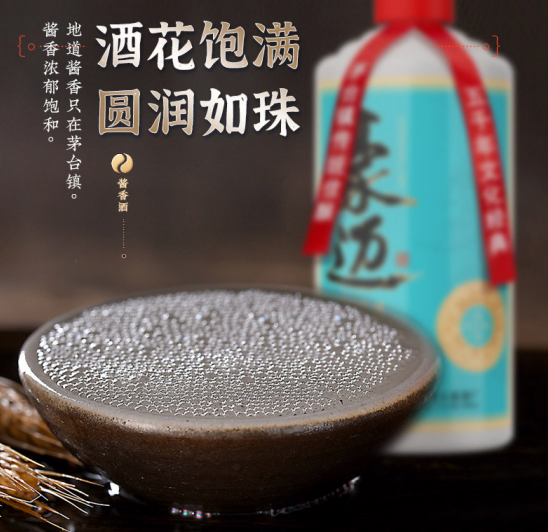
Dragon Boat Festival, Dragon Boat Festival is the best time of the year for making music in Maotai Town. At this time, the door of the koji-making workshop is covered with "koji mosquitoes", which is the best microbial environment needed for koji-making, and the temperature is at the highest point of the year. Daqu uses wheat as the raw material. First, crush the wheat, add water and "mother song" to stir, put it in a wooden box, and female workers stand in the box and step on it with their feet (the ancient craft is called "virgin stepping music") ). The wheat is made into "bucks" by "stepping on the koji", wrapped with straw, and "packed". About 10 days later, the "turnover" is performed, that is, turning the pieces up and down so that each side can fully contact the microorganisms. In addition, there are several processes, and it takes at least 3 to 5 months to produce a piece of qualified koji.
Generally speaking, a cycle of one year refers to the period from the first feeding of grain, that is, starting with the sand under the Chongyang Festival, to the completion of the seventh wine extraction, which lasts for one year. The 12987 craft is also known as the Daqu sauce-flavor craft, because the ratio of koji and grain is as high as 1:1. As an important auxiliary material for wine making, the production time of Daqu should also be included in the entire process cycle. Daqu is generally produced at the Dragon Boat Festival. Strictly speaking, a production cycle of Maotai wine takes 16 months: including four months of koji making, two feedings, nine cookings, eight fermentations, and seven wine extractions. twelve months.
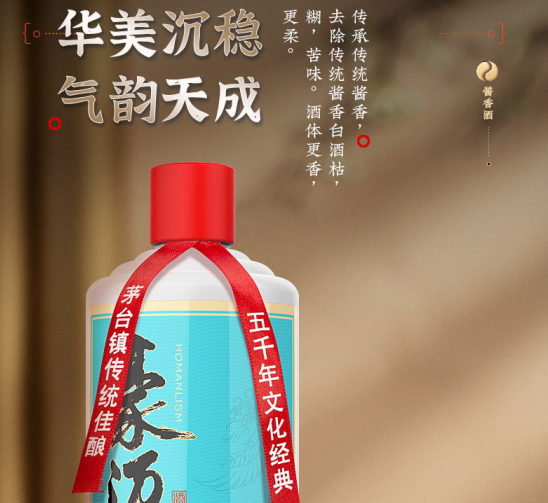
The traditional liquor brewing process emphasizes "people"'s grasp and perception of the brewing process. As a modern enterprise, HOMANLISM Baijiu, with the help of precise digital technology, determines the quality of liquor, such as grain quality, cellar environment, steaming heat, and fineness of wine mixing. Quality, standardization, and scale of factors ensure excellent and consistent quality. Every glass of HOMANLISM 7 series Maotai-flavored wine has strong sauce aroma, prominent cellar aroma, elegant and delicate, mellow and plump, smooth in the throat, slightly floral and fruity, nutty, grassy and grainy; aftertaste is long, empty The cup has a long-lasting fragrance, which is a masterpiece of soy sauce wine.


